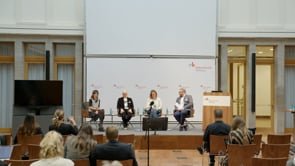Expert opinion on pastiche: More freedom for social communication and internet culture in copyright law
Download the study: The Pastiche in Copyright Law, CC-by 4.0 Dr. Till Kreutzer
Copyright law needs to strike a fair balance between different fundamental rights – in particular between the right to (intellectual) property on the one hand and freedom of expression and the arts on the other. In the context of the debate about the introduction of mandatory upload filters by the EU Copyright Directive, there was a strong concern: The automatic enforcement of copyright by upload filters could lead to the mass blocking of tolerated forms of social communication on the internet, the lawfulness of which, however, had not been clarified.
These forms of expression, such as memes, remixes, reaction GIFs or samplings, are characterized by the fact that they often make use of copyrighted material but rarely cause economic damage. At the same time, the more these forms of communication shape political debates and creative processes, the more important they become to the exercise of freedom of expression and the arts. In order to protect these fundamental rights in light of the intensification of copyright enforcement, European legislators introduced new rights of use in parallel with upload filters: In addition to citation, criticism, and review, the use of copyrighted works for caricature, parody, and pastiche was legalized across Europe. This was the European Union's response to calls from civil society to "save the meme."

External Content from Vimeo
Please see the privacy policy of Vimeo if you are loading external content.
In the meantime, the European Court of Justice has ruled on the compatibility of the controversial Article 17 of the EU Copyright Directive with freedom of expression. In doing so, it concludes that the safeguards for freedom of expression, including the right to caricature, parody and pastiche, are essential if upload filters are to be applied in accordance with fundamental rights. The Society for Civil Rights (GFF), together with our partner COMMUNIA, hosted the academic conference "Filtered Futures" on the consequences of the European Court of Justice's Article 17 ruling on September 19, 2022 in Berlin, where Dr. Till Kreutzer presented the results of his expert opinion on pastiche.
The text on this website is licensed under a Creative Commons Attribution 4.0 International License.
